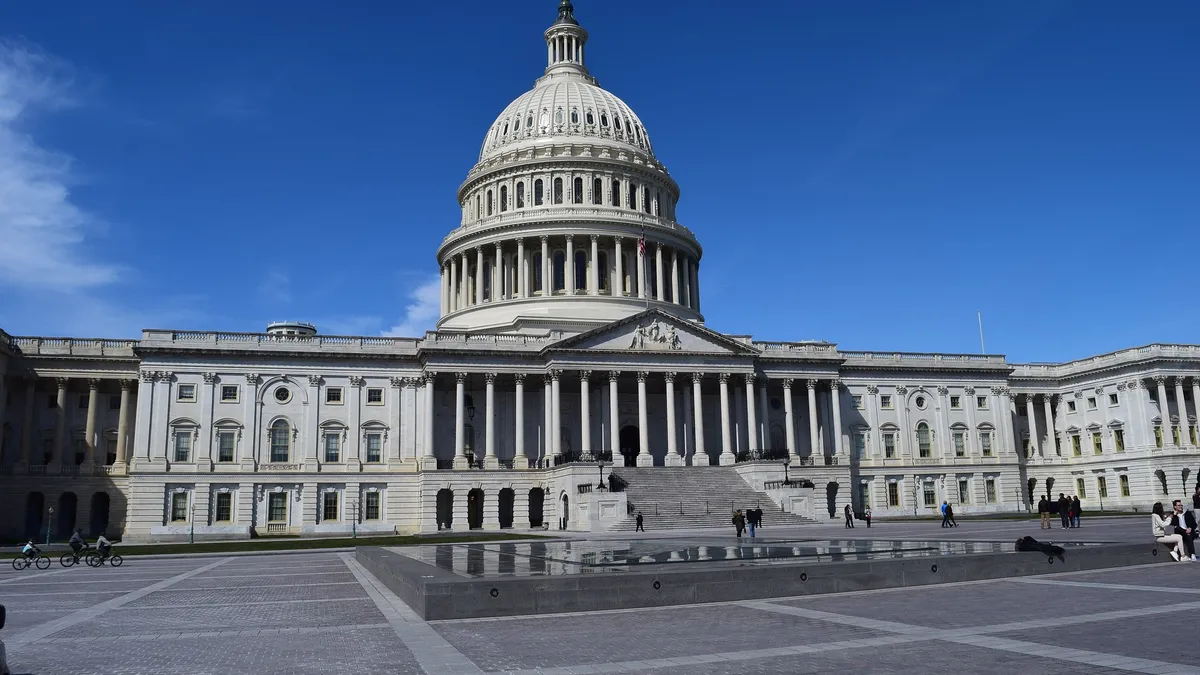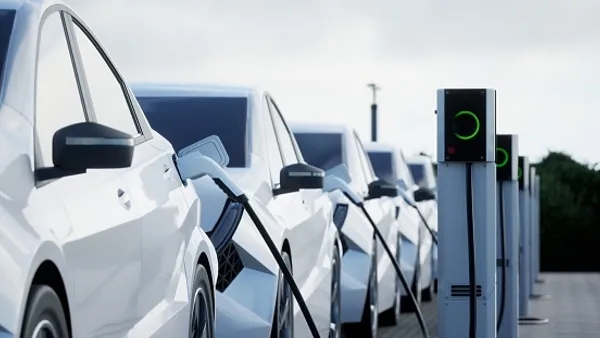Dive Brief:
- Battery costs for electric vehicles are expected to decline to $90-$115/kWh by 2025 and $65-$80/kWh at the pack level by 2030, according to a report issued Wednesday by the National Academies of Sciences, Engineering, and Medicine.
- The report, mandated by a 2007 Congressional directive asking the National Academies to periodically review fuel economy standards, projects the electric vehicle market from 2025 to 2035 and concludes EVs with a range of 300 miles or more will reach first-cost parity with internal combustion engines (ICE) by 2030. Shorter-range vehicles could reach cost parity sooner.
- The report also includes a series of recommendations for federal agencies, calling on them to use their authority to drive the "development and deployment of zero-emission vehicles (ZEV)" as they "present the long-term future of energy efficiency, petroleum reduction, and greenhouse gas emissions reduction" within the light-duty transportation sector.
Dive Insight:
The report concludes there is little doubt ZEVs will soon come to dominate the transportation sector, and calls on the federal government to enact a series of policies to speed and smooth the transition.
Purchase subsidies for EVs, plug-in hybrids and fuel cell electric vehicles "should be continued until financial and psychological consumer barriers to purchasing such vehicles have been overcome," the report says. It recommends, however, that current incentive structures should be changed to point-of-sale rebates "to increase effectiveness and lower fiscal burdens."
"Income eligibility should be considered for both policy equity and effectiveness," the report recommends.
The report recommends urges the U.S. Department of Transportation, the U.S. Environmental Protection Agency, and the U.S. Department of Energy coordinate "to facilitate electric charging and hydrogen refueling infrastructure deployment with relevant stakeholders, including state and local government agencies, business associations and entities."
And, the report also calls on Congress to appropriate funds for creation of "a national public-private partnership to lead this coordinating effort." It also says the National Highway Traffic Safety Administration (NHTSA) should set corporate average fuel efficiency (CAFE) standards for 2035 "to be in line with the predicted increased sales of ZEVs at that time."
"We are now just past 40 years of the CAFE program. And although there has been significant progress in increasing fuel economy, the transportation sector still remains the largest contributor of greenhouse gas emissions and the second largest energy consuming sector of the U.S. economy. So there's still a lot of potential to improve," said Gary Marchant, director of the Center for Law, Science, and Innovation at Arizona State University, and chair of the committee that wrote the report. Marchant spoke virtually at a Wednesday event, presenting the report's findings.
The report, sponsored by NHTSA, considered electric vehicles, plug-in hybrids, internal combustion engines, fuel cells, non-power train technologies, and connected and automated transportation. It was developed through public fact-finding discussions and private conversations covered by non-disclosure agreements, said Marchant.
"We found a remarkable convergence across everyone we spoke to," he said, including industry, academics and NGOs, battery developers, and automakers. "We are able to move towards a zero emissions vehicle fleet in the next couple of decades. That is now a feasible objective and we can all direct our attention to achieving it."
The report finds automakers expect tens of millions of ZEVs globally will be rolled out during the 2025-2035 period, "aiming to achieve at least 50%-100% ZEV sales by 2030-2035 in leading jurisdictions."
"We believe these are coming very fast now," said Marchant. "They will become the dominant type of new vehicles sold by 2035."















